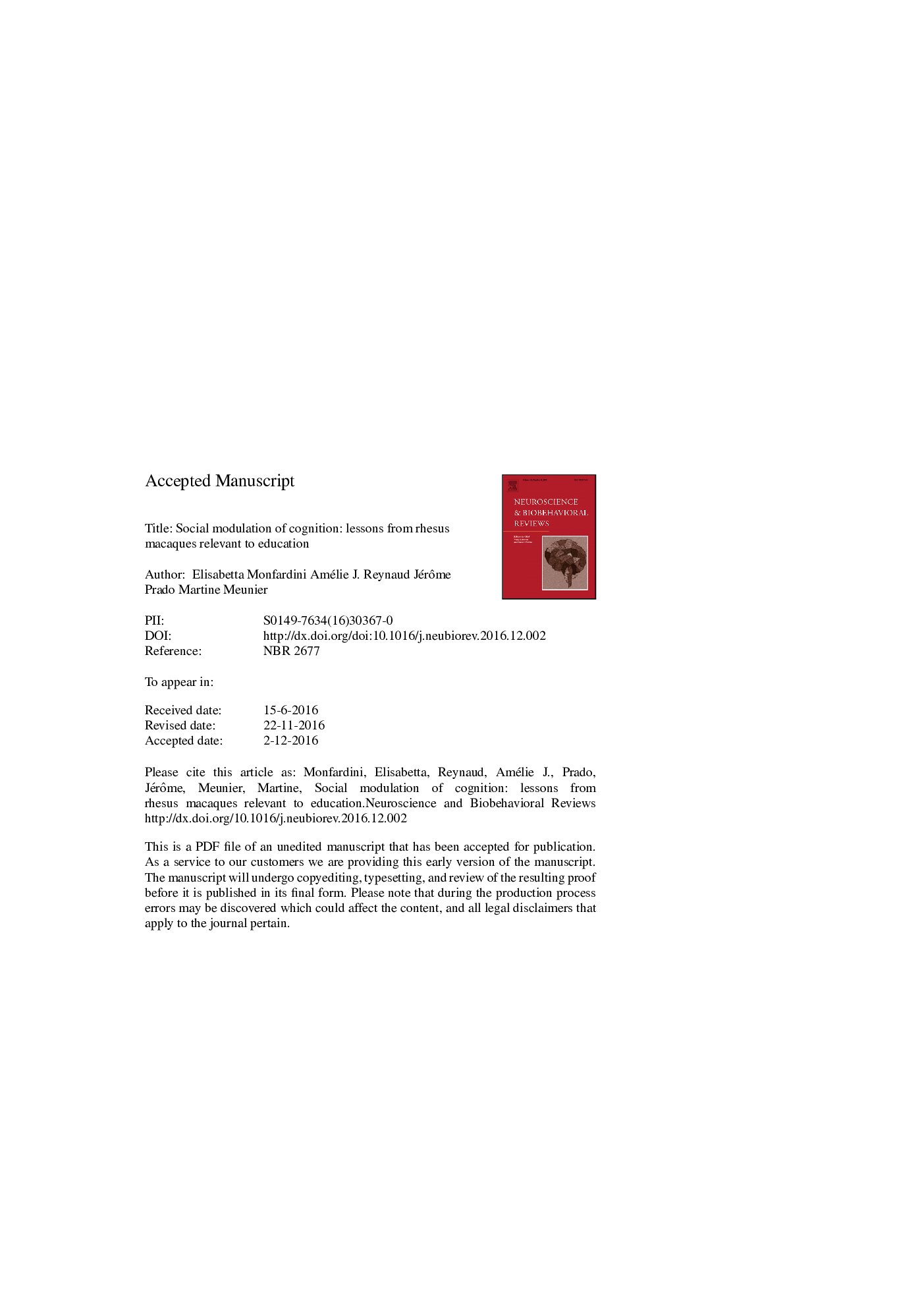| Article ID | Journal | Published Year | Pages | File Type |
|---|---|---|---|---|
| 7302564 | Neuroscience & Biobehavioral Reviews | 2017 | 46 Pages |
Abstract
Any animal, human or non-human, lives in a world where there are others like itself. Individuals' behaviors are thus inevitably influenced by others, and cognition is no exception. Long acknowledged in psychology, social modulations of cognition have been neglected in cognitive neuroscience. Yet, infusing this classic topic in psychology with brain science methodologies could yield valuable educational insights. In recent studies, we used a non-human primate model, the rhesus macaque, to identify social influences representing ancient biases rooted in evolution, and neuroimaging to shed light on underlying mechanisms. The behavioral and neural data garnered in humans and macaques are summarized, with a focus on two findings relevant to human education. First, peers' mistakes stand out as exceptional professors and seem to have devoted areas and neurons in the primates' brain. Second, peers' mere presence suffices to enhance performance in well-learned tasks, possibly by boosting activity in the brain network involved in the task at hand. These findings could be translated into concrete pedagogical interventions in the classroom.
Related Topics
Life Sciences
Neuroscience
Behavioral Neuroscience
Authors
Elisabetta Monfardini, Amélie J. Reynaud, Jérôme Prado, Martine Meunier,
